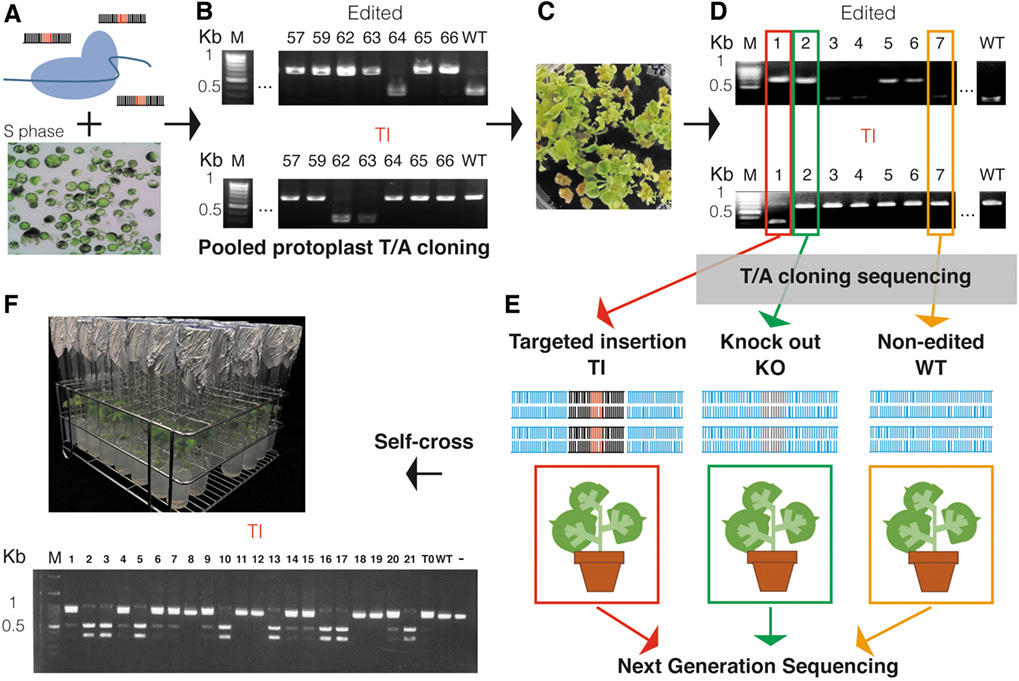
 中央研究院 生物化學研究所
中央研究院 生物化學研究所
Versatile genome editing can be facilitated by the insertion of DNA sequences into specific locations. Current protocols involving CRISPR and Cas proteins rely on low efficiency homology-directed repair or non-homologous end joining with modified double-stranded DNA oligonucleotides as donors. Our simple protocol eliminates the need for expensive equipment, chemical and enzymatic donor DNA modification, or plasmid construction by using polyethylene glycol-calcium to deliver non-modified single-stranded DNA oligonucleotides and CRISPR-Cas9 ribonucleoprotein into protoplasts. Plants regenerated via edited protoplasts achieved targeted insertion frequencies of up to 50% in Nicotiana benthamiana and 13.6% in rapid cycling Brassica oleracea without antibiotic selection. Using a 60 nt donor containing 27 nt in each homologous arm, 6/22 regenerated N. benthamiana plants showed targeted insertions, and one contained a precise insertion of a 6 bp HindIII site. The inserted sequences were transmitted to the next generation and invite the possibility of future exploration of versatile genome editing by targeted DNA insertion in plants.
